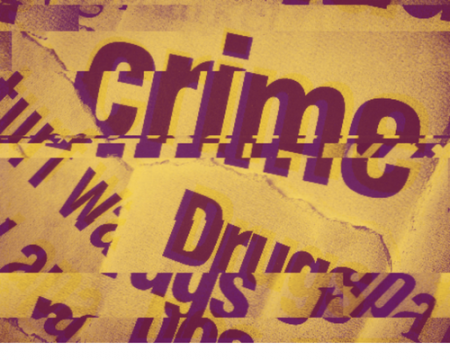What happened during the 2023 legislative session?
On February 6, 2023, the Senate Law & Justice Committee heard four bills proposing new drug possession laws to replace temporary criminal provisions adopted after the Blake decision struck down Washington’s previous, unconstitutional law. The temporary provisions will expire on July 1, 2023. One of those bills, SB 5624, would have implemented the recommendations of the Substance Use Recovery Services Advisory Committee, a 28-member panel of healthcare, substance use disorder, recovery, and law enforcement experts convened by the Washington State Health Care Authority. Those recommendations included decriminalization of drug possession. However, the three other bills all proposed new criminal penalties, including SB 5536, the only bill of the four to advance. SB 5536 passed out of the Senate on March 3 with a gross misdemeanor penalty and new mandatory minimum jail terms imposed for people who failed to comply with court-ordered treatment plans.
In the House, the penalties established by SB 5536 were reduced from gross misdemeanors to misdemeanors, but new crimes were added for public use of drugs. The House also preempted the entire field of drug paraphernalia regulation leaving no room for local ordinances or regulations that might interfere with the provision of harm reduction services. The House passed this new version of SB 5536 on April 11, and on April 21, just two days before the end of the session, the Senate voted not to concur in the House amendments. Because the Senate did not agree with the changes made in the House, the two chambers appointed three legislators each to a conference committee tasked with negotiating a compromise. The compromise was reported the evening of April 22, and on April 23, the last day of session, was brought to the floor of the House for an up-or-down vote. The vote failed, and the legislature adjourned without having passed a law to replace the temporary, post-Blake penalties of a misdemeanor.
What was in the compromise bill?
The conference committee proposed to escalate criminal penalties back up from a misdemeanor, which carries up to 90 days in jail and a $1,000 fine, to a gross misdemeanor, which carries up to 364 days and a $5,000 fine. The proposal also maintained and escalated the new public use crime to a gross misdemeanor. For comparison purposes, public display of alcohol and cannabis are class 3 civil infractions. In the area of drug paraphernalia, the conference committee created a carve-out that allowed local jurisdictions to adopt ordinances establishing public hearing or noticing requirements before harm-reduction programs could be set up in a locality.
What funding was proposed in the compromise bill?
Roughly $43 million would have been provided to the Health Care Authority, Office of Homeless Youth, and Department of Children, Youth, and Families (in part by the operating budget) to establish a health engagement hub pilot program, expand 23-hour crisis relief center capacity, increase the number of mobile and fixed methadone units with prioritization of rural areas, support employment and education services for people with substance use disorders, support operation of recovery residences and youth shelters that provide behavioral health support services, and provide training and opioid reversal medication to parents of children with substance use disorders and DCYF case workers.
What happens if no new drug possession law is passed?
On July 1, 2023, the misdemeanor criminal penalty created in 2021 in response to the Blake decision will expire. If no new law is passed, drug possession would no longer be a crime under state law, but drug manufacture and distribution would remain felonies. The legislature could take up again the question of whether we should impose criminal penalties for drug possession when it reconvenes in January 2024.
The governor could also call a 30-day special session to revisit this issue prior to July 1.
What can localities do? What can’t they do?
Local jurisdictions can pass ordinances imposing misdemeanor and gross misdemeanor penalties for crimes as long as the penalties are consistent with state laws addressing the same crimes. If the state has not addressed whether an act should or should not be a crime, a local jurisdiction can consider its own ordinance but cannot exceed the gross misdemeanor penalty. Finally, police can still seize illicit drugs even if neither state nor local law makes possession of those drugs a crime:
- Seizure and forfeiture – via RCW 69.50.505
What happens during a special session?
A special session is a session of no more than 30 days, convened by the governor or the Legislature, following adjournment of the regular session. The governor has unilateral power to convene a special session, and the Legislature, upon two-thirds vote of all members, may call itself into special session. The governor or Legislature specifies the purposes for which the special session is convened. The chambers could continue working toward an agreement on E2SSB 5536 or introduce new legislation to address specific aspects of that bill, like the criminal penalties or the funding aimed at substance use disorder prevention, treatment, and recovery.
What is the difference between decriminalization and legalization?
The Legislature’s failure to accept the conference committee proposal means that the possession of drugs would no longer be criminalized after July 1, 2023, unless the Legislature acts before then, but this does not mean that substances would be legalized.
Decriminalization is the act of removing criminal sanctions against certain activities, including possession of drugs for personal use. The substance is still prohibited generally, but the repercussions for being found in possession of the substance are no longer criminal. Instead of incarceration, those found in possession of drugs could get redirected to services and have the drug seized. The production and sale of the decriminalized drug is still illegal.
Legalization is the act of permitting by law use of a substance. In the drug policy context, the term "legalization" gets used in different ways. Generally, though, it implies some type of legal supply, from prescriptions to regulated cannabis shops. People can use the substance without worry of being convicted or fined. Limits can still be set on its use. For instance, the law may require you to be a certain age to use the substance and the government can still limit the amount a person can carry or possess, such as is the case with prescription drugs. Suppliers may need a license to sell the substance, like with cannabis or alcohol. In 2012, Washington became one of the first U.S. states to legalize recreational use of cannabis and to allow recreational cannabis sales. Both the use and sale of the substance are permissible under legalization.
Read more about the difference here: The difference between the decriminalization and legalization of substances







